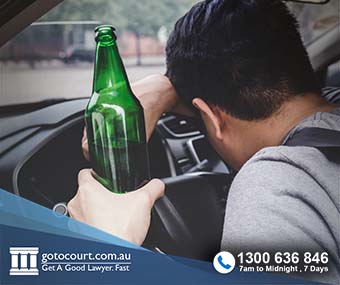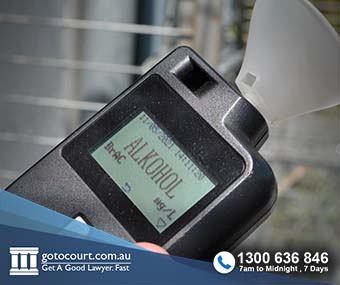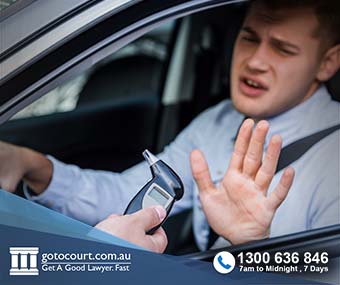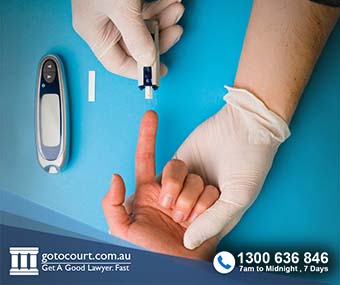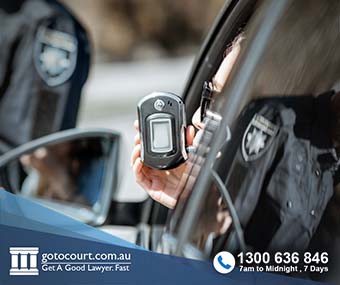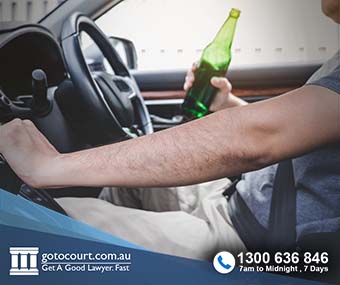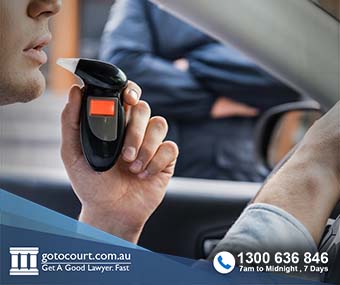Call our lawyers
now
or,
have our lawyers
call you
Refusing a Blood Test in New South Wales
Updated on Nov 17, 2022 • 4 min read • 324 views • Copy Link
Refusing a Blood Test in New South Wales
In New South Wales, police have the power to subject drivers to testing for drugs or alcohol. In some circumstances, a driver may be required to provide a blood sample instead of (or as well as ) a breath test. Refusing a blood test without a valid reason is a criminal offence in New South Wales. The laws that outline the process of requesting, taking and analysing blood tests in New South Wales are set out in the Road Transport Act 2013.
How is a blood test conducted?
In a blood test a sample of a person’s blood is taken from a vein, usually one in the arm by a medically qualified person who is authorised to do so. The sample is then divided between two vials which are sealed and sent to the New South Wales State Analytical Laboratories. The Laboratory will test one of the vials, and the person from whom the sample was taken can request that the other is sent for testing to a pathologist or laboratory of their own choosing if they wish to do so to confirm the result.
Offence of refusing a blood test
Under section 17 of Schedule 3 of the Road Transport Act 2013, it is an offence to refuse or fail to submit to the taking of a blood sample.
The maximum penalty for a first offence is a fine of 30 penalty units, imprisonment for 18 months, or both. A disqualification period of at least six months will also be imposed.
The maximum penalty for a second offence is a fine of 50 penalty units, imprisonment for two years, or both. A disqualification period of at least 12 months will be imposed.
Other offences
It is an offence under section 19 of Schedule 3 of the the Road Transport Act 2013 for a person to hinder or obstruct a sample taker from taking a sample from another person. The maximum penalty for this offences is a fine of 20 penalty units.
It is also an offence for an authorised sample taker to refuse to take a sample of a person’s blood when lawfully directed to do so. The maximum penalty for this offence is a fine of 20 penalty units. It is a defence to the charge if the sample taker refused to take the blood sample on medical grounds, or because they believed that they did not have to take a sample in the circumstances, or because they believed that the person was under 15, or if they were unable to take a sample because of the behaviour of the accused, or on other reasonable grounds.
When can police require a blood sample?
A police officer can direct you to provide a blood sample if:
- You have been physically unable to provide a breath sample when you were lawfully directed to do so.
- You have been physically unable to provide an oral fluid sample when you were lawfully directed to do so.
- You have undertaken an oral fluid test and the result showed that there may be prescribed illicit drugs present in your oral fluid.
- A police officer has conducted a sobriety assessment and as a result of that assessment reasonably believes that you may be under the influence of a drug.
- You have refused or failed to submit to an oral fluid test when lawfully required to.
- You are in hospital following an accident in which you were the driver or rider of a motor vehicle or a horse, or were attempting to drive or ride a motor vehicle, or were the supervising driver in a motor vehicle, provided that you are over the age of 15 years.
- You were the driver or rider of a motor vehicle or a horse, or attempting to drive or ride a motor vehicle, or were the supervising driver in a motor vehicle and you were involved in an accident where someone died, or is likely to die as a result of the accident.
Defences
A request to provide a blood sample can be lawfully refused if it is medically dangerous to take the sample, if more than four hours have passed since the incident or if the person has since returned to their own home.
If you require legal advice or representation in any legal matter, please contact Go To Court Lawyers.

Affordable Lawyers
Our Go To Court Lawyers will assist you in all areas of law. We specialise in providing legal advice urgently – at the time when you need it most. If you need a lawyer right now, today, we can help you – no matter where you are in Australia.How It Works







1. You speak directly to a lawyer
When you call the Go To Court Legal Hotline, you will be connected directly to a lawyer, every time.


2. Get your legal situation assessed
We determine the best way forward in your legal matter, free of charge. If you want to go ahead and book a face-to-face appointment, we will connect you with a specialist in your local area.


3. We arrange everything as needed
If you want to go ahead and book a fact-to-face appointment, we will connect you with a specialist in your local area no matter where you are and even at very short notice.


